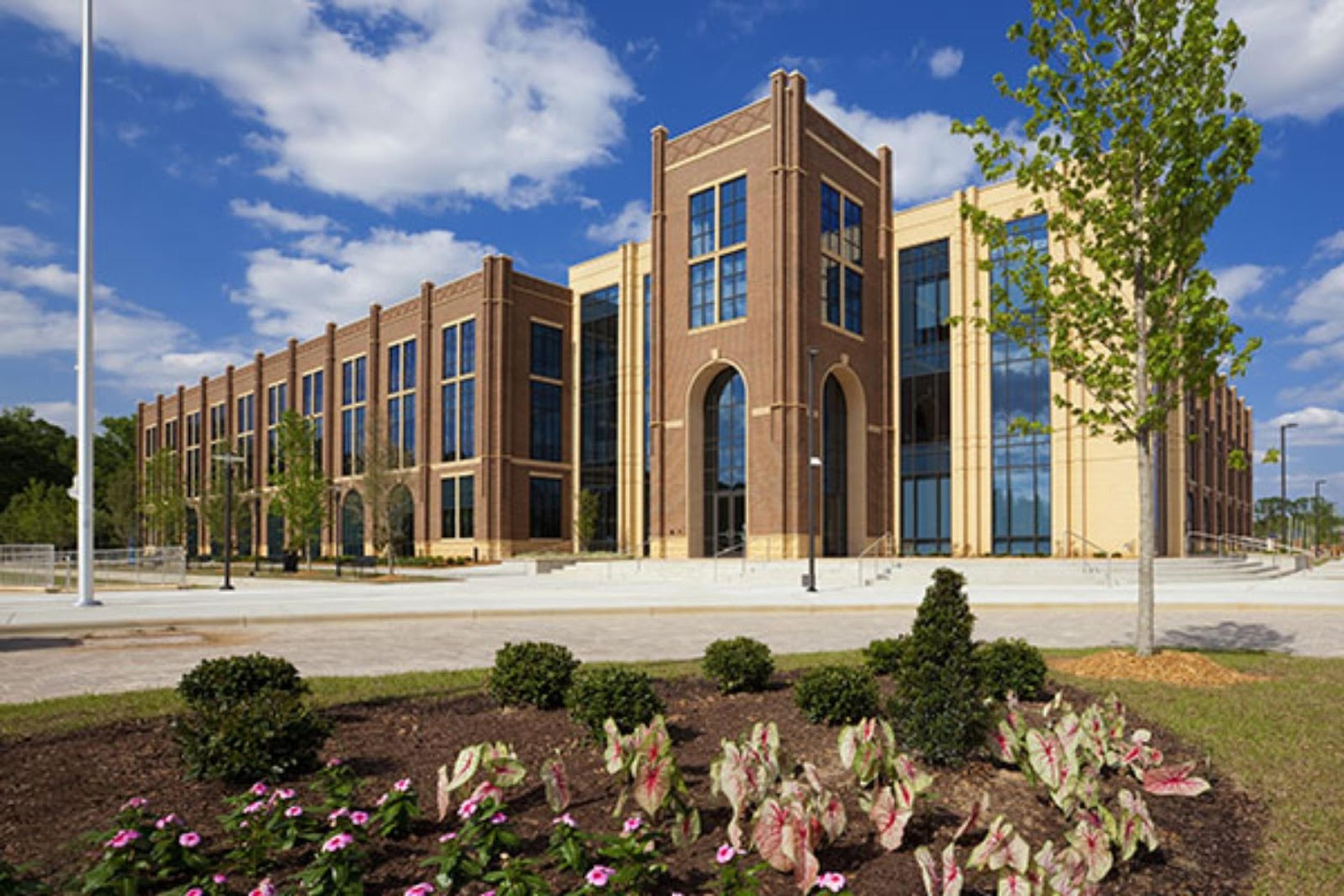Comprehensive List of 3-Year Medical School Programs (Accelerated Pathway)
Looking to fast-track your medical career? Check this comprehensive guide to 3-year accelerated medical school programs, packed with insights on admissions, curriculum, and success tips for aspiring doctors.
Posted March 6, 2025

Table of Contents
Are you an aspiring doctor who is looking to fast-track your medical education? Then you may want to consider the benefits of enrolling in a 3-year accelerated medical school program. In this ultimate guide, we will explore the ins and outs of these intensive programs, providing you with all the information you need to make an informed decision about your medical education.
List of 3-Year Medical Schools
Accelerated 3-year medical school programs offer a focused and expedited route to earning an MD degree, tailored for students who are certain of their career goals. These programs reduce the time to enter the medical workforce while offering cost savings and streamlined education.
Below is a detailed overview of some of the leading 3-year medical school programs, highlighting their unique features, focus areas, and benefits.
1. NYU Grossman School of Medicine
NYU’s Accelerated 3-Year MD Pathway is a trailblazer in accelerated medical education, designed for students who have clarity about their specialty choice and are committed to efficient learning.
The program integrates an intensive curriculum with direct entry into NYU’s prestigious residency programs, allowing students to save both time and money. With a strong emphasis on mentorship, students are guided by faculty throughout the program and into their residency, ensuring a seamless transition.
2. Penn State College of Medicine Accelerated Pathway
Penn State College of Medicine offers an Accelerated Pathway program designed for students committed to pursuing specific primary care or specialty fields. This 3-year MD program allows students to fast-track their education while ensuring a seamless transition into Penn State Health residency programs.
The curriculum is rigorous and tailored to equip students with both the academic knowledge and clinical skills necessary to excel in their chosen field. This pathway is ideal for students who are focused, goal-oriented, and eager to begin their medical careers.
3. Medical College of Wisconsin – Green Bay
The Medical College of Wisconsin (MCW) – Green Bay campus offers a 3-year MD program tailored for students interested in primary care and community-based medicine. This accelerated program emphasizes early and continuous clinical exposure within a supportive and collaborative learning environment.
By focusing on community health, the program trains physicians to meet the needs of underserved areas, preparing them to make a direct impact in their communities.
4. Texas Tech University Health Sciences Center School of Medicine
Texas Tech’s Family Medicine Accelerated Track (FMAT) is crafted for students dedicated to pursuing a career in family medicine. The program offers a condensed pathway that prepares graduates for the complexities of primary care while significantly reducing time and educational costs. Students benefit from a curriculum that combines clinical exposure with robust academic preparation.
5. Mercer University School of Medicine
Mercer University’s Accelerated Bachelor of Science in Nursing (ABSN) track focuses on addressing the healthcare needs of rural and underserved populations. Tailored for students passionate about making a difference in primary care, this accelerated track emphasizes community-focused nursing practice.
With a curriculum built to prepare future nurses for impactful, community-based roles, the ABSN program cultivates meaningful connections between students and the populations they will serve.
6. Lake Erie College of Osteopathic Medicine (LECOM)
LECOM’s Primary Care Scholars Pathway provides an accelerated route to becoming a primary care physician. The accelerated program emphasizes early clinical experience and a robust academic foundation to prepare students for the demands of patient care. It is ideal for students committed to primary care specialties who value hands-on learning.

Guide to 3-Year Accelerated Medical Programs
3-year accelerated medical programs are designed for motivated and academically accomplished students who are willing to commit to an intense and accelerated curriculum. These programs condense the traditional 4-year medical school curriculum into just 3 years, allowing students to complete medical school education at a quicker pace.
While these programs may not be suitable for everyone, they offer unique accelerated medical pathway programs for individuals who are committed to becoming physicians in a shorter amount of time.
The following sections will delve deeper into the benefits of 3-year accelerated medical programs, admission requirements, curriculum structure, strategies for balancing intensive study, and the transition to residency.
Benefits of 3-Year Accelerated Medical Programs
There are several benefits to pursuing a 3-year accelerated medical program. Firstly, these programs allow students to enter the medical profession and start their careers earlier than their peers in traditional 4-year programs. This can be advantageous for those who are eager to begin practicing family medicine, internal medicine, or any medicine to make a difference in patients' lives.
Additionally, the condensed timeline of these programs can lead to significant cost savings. By completing their medical education in 3 years instead of 4, students can save on tuition fees, living expenses, and other associated costs. This can be particularly beneficial for individuals who are concerned about the financial burden of medical school.
Furthermore, 3-year accelerated medical programs often attract highly motivated and academically accomplished students. The rigorous nature of these programs requires students to be dedicated, disciplined, and focused. As a result, graduates of these programs are often well-prepared to handle the challenges of medical practice and excel in their careers.
Admission Requirements
Admission into a 3-year accelerated medical program is highly competitive. In addition to meeting the general requirements for medical school admission, such as completing prerequisite courses and taking the MCAT, applicants must demonstrate exceptional academic performance and a strong commitment to the field of medicine.
Many programs also require applicants to have relevant healthcare experience, such as volunteering or shadowing in a clinical setting. This experience not only helps applicants gain a better understanding of the medical profession but also allows them to demonstrate their dedication and passion for healthcare.
Academic performance, letters of recommendation, extracurricular activities, and medical experience all play significant roles in the admission process. It's crucial to research individual program requirements and tailor the application accordingly.
Admission Requirements:
- High undergraduate GPA
- Competitive MCAT scores
- Strong letters of recommendation
- Relevant clinical or research experience
Curriculum Structure:
- Integrated basic and clinical science courses
- Intensive clerkship rotations
- Supplementary hands-on training
- Advanced simulation exercises
Related topics:
- How to Write an Effective Medical School Letter of Recommendation
- How to Write a Powerful Personal Statement for Medical School
- Mastering Medical School Interviews: Questions and Strategies
Curriculum Structure
The curriculum of a 3-year accelerated medical program is carefully designed to cover all the essential topics and skills required for medical practice. While the curriculum may be condensed, it is still comprehensive and rigorous.
Students can expect to study a wide range of subjects, including anatomy, physiology, pharmacology, pathology, and clinical medicine. The curriculum also incorporates hands-on clinical experiences, allowing students to apply their knowledge in real-world settings.
To ensure that students are well-prepared for the demands of medical practice, these programs often include intensive clinical rotations and electives. These experiences provide students with the opportunity to gain practical skills, work with patients, and explore different medical specialties.
Strategies for Balancing Intensive Study
Successfully completing a 3-year accelerated medical program requires effective time management and self-discipline. Students must be able to balance the demands of coursework, clinical rotations, and personal life.
3-year accelerated medical programs require dedication and efficient study habits to manage the accelerated pace. Here are some strategies to help you balance the demands of intensive study:
- Create a structured study schedule
- Utilize effective study techniques
- Seek support from peers and mentors
- Practice self-care and maintain a healthy work-life balance
Additionally, seeking support from peers, faculty, and mentors can be beneficial. Collaborating with classmates, forming study groups, and seeking guidance from experienced professionals can provide students with valuable insights, resources, and emotional support.
Remember, it's essential to foster resilience and maintain your mental well-being throughout this challenging journey.
Transition to Residency
Upon completing a 3-year accelerated medical program, students must transition to residency training. The transition from medical school to residency is a critical phase in a physician's career, as it marks the beginning of their hands-on clinical training.
During the residency application process, graduates of 3-year accelerated medical programs are evaluated based on their academic performance, clinical experiences, letters of recommendation, and personal statements. Matching into a residency program requires careful preparation, including researching programs, attending interviews, and ranking preferences.
Once matched, residents embark on a period of intense training, where they further develop their clinical skills and knowledge under the supervision of experienced physicians. This period of residency training varies in length depending on the specialty chosen, ranging from three to seven years.
It is best to build strong professional relationships with faculty members and mentors who can guide you through the residency application process. Seek opportunities to gain exposure to different specialties through electives and research experiences.
Additionally, consider participating in residency programs, such as mock interviews and workshops, to increase the chances of convincing residency programs and securing a desired residency position.
Overall, 3-year accelerated medical programs provide a unique opportunity for highly motivated individuals to pursue their passion for medicine in a shorter timeframe. While these programs require dedication and hard work, they offer numerous benefits and can lead to a rewarding and fulfilling career in healthcare.

How to Choose the Right Accelerated Program
Selecting the right 3-year medical school program requires careful consideration of one’s career aspirations, learning style, and readiness for an intensive academic schedule. Use the following steps to guide one’s decision-making process:
- Identify your career goals - Determine whether your career interests align with the focus areas of 3-year programs, such as family medicine or primary care. These programs are ideal for students who have clear specialty goals.
- Evaluate academic and clinical fit - Review accelerated curricula and clinical training opportunities. Look for schools offering hands-on experiences and a curriculum that prepares you for your chosen field.
- Assess financial implications - Calculate the cost savings of a shorter program versus potential financial aid or scholarships available at traditional 4-year programs. Factor in the long-term ROI of entering the workforce earlier.
- Understand program requirements - Research prerequisites, including MCAT scores, GPA, and clinical experience. Ensure you meet the criteria for admission and understand the expectations.
- Consider support systems - Check whether the program offers mentorship, peer support, and wellness resources. The demanding nature of accelerated programs makes a strong support network essential.
- Visit and connect - Attend open houses, webinars, or campus tours. Speak with admissions counselors, current students, and alumni to gain deeper insights into the program’s culture and opportunities.
- Reflect on Your Readiness - Ask yourself if you are prepared for the intensity and fast pace of a 3-year curriculum. These programs require resilience, time management, and a strong commitment to success.
What’s Next?
3-year accelerated medical programs offer driven individuals the opportunity to attain their medical degree in a shorter timeframe. While these programs require a significant amount of commitment and dedication, they can provide numerous benefits, including an expedited path to becoming a practicing physician.
By understanding the admission requirements, curriculum structure, strategies for balancing intensive study, and the transition to residency, you can make an informed decision about whether a 3-year accelerated medical program is the right choice for you.
Choose the Medical School That’s Right For You
Remember, this guide is just the beginning of your journey. Research various programs, speak with admissions counselors, and seek advice from current students, alumni, or top medical admissions coaches to gain a comprehensive understanding of what each specific program entails.











